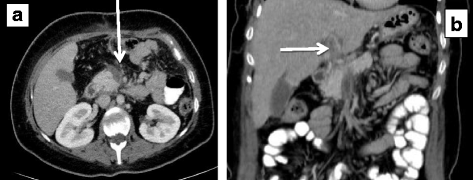Acute mesenteric ischemia: guidelines of the World Society of Emergency Surgery
- PMID: 28794797
- PMCID: PMC5545843
- DOI: 10.1186/s13017-017-0150-5
Acute mesenteric ischemia: guidelines of the World Society of Emergency Surgery
Abstract
Acute mesenteric ischemia (AMI) is typically defined as a group of diseases characterized by an interruption of the blood supply to varying portions of the small intestine, leading to ischemia and secondary inflammatory changes. If untreated, this process will eventuate in life threatening intestinal necrosis. The incidence is low, estimated at 0.09-0.2% of all acute surgical admissions. Therefore, although the entity is an uncommon cause of abdominal pain, diligence is always required because if untreated, mortality has consistently been reported in the range of 50%. Early diagnosis and timely surgical intervention are the cornerstones of modern treatment and are essential to reduce the high mortality associated with this entity. The advent of endovascular approaches in parallel with modern imaging techniques may provide new options. Thus, we believe that a current position paper from World Society of Emergency Surgery (WSES) is warranted, in order to put forth the most recent and practical recommendations for diagnosis and treatment of AMI. This review will address the concepts of AMI with the aim of focusing on specific areas where early diagnosis and management hold the strongest potential for improving outcomes in this disease process. Some of the key points include the prompt use of CT angiography to establish the diagnosis, evaluation of the potential for revascularization to re-establish blood flow to ischemic bowel, resection of necrotic intestine, and use of damage control techniques when appropriate to allow for re-assessment of bowel viability prior to definitive anastomosis and abdominal closure.
Keywords: Guidelines; Mesenteric angiography; Mesenteric arterial occlusion; Mesenteric artery stenting; Mesenteric ischemia; Recommendations; Small bowel ischemia.
Conflict of interest statement
Ethics approval and consent to participate
Not applicable.
Consent for publication
Not applicable.
Competing interests
The authors declare that they have no competing interests.
Publisher’s Note
Springer Nature remains neutral with regard to jurisdictional claims in published maps and institutional affiliations.
Figures



Comment in
-
Acute Mesenteric Ischemia: Have the Guidelines of the World Society of Emergency Surgery Analyzed All the Available Evidence?Cardiovasc Intervent Radiol. 2018 Feb;41(2):358-359. doi: 10.1007/s00270-017-1817-8. Epub 2017 Oct 30. Cardiovasc Intervent Radiol. 2018. PMID: 29086055 No abstract available.
-
Acute mesenteric ischemia: guidelines of the World Society of Emergency Surgery: a brief radiological commentary.World J Emerg Surg. 2018 Jul 27;13:34. doi: 10.1186/s13017-018-0197-y. eCollection 2018. World J Emerg Surg. 2018. PMID: 30069228 Free PMC article.
References
Publication types
MeSH terms
Substances
LinkOut - more resources
Full Text Sources
Other Literature Sources
Medical

